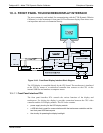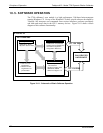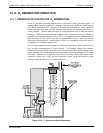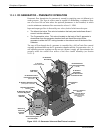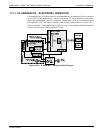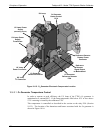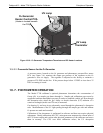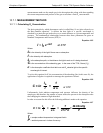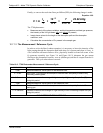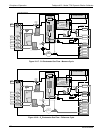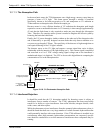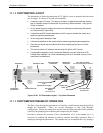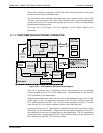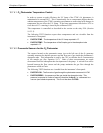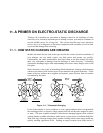
Principles of Operation Teledyne API – Model T700 Dynamic Dilution Calibrator
298
measurements made on the sample gas in the absorption tube along with data regarding
the current temperature and pressure of the gas to calculate a final O
3
concentration.
10.7.1. MEASUREMENT METHOD
10.7.1.1. Calculating O
3
Concentration
The basic principle by which photometer works is called Beer’s Law (also referred to as
the Beer-Lambert equation). It defines the how light of a specific wavelength is
absorbed by a particular gas molecule over a certain distance at a given temperature and
pressure. The mathematical relationship between these three parameters for gases at
Standard Temperature and Pressure (STP) is:
Equation 10-5
LC-
0
II
α
e=
at STP
Where:
I
o
is the intensity of the light if there was no absorption.
I is the intensity with absorption.
L is the absorption path, or the distance the light travels as it is being absorbed.
C is the concentration of the absorbing gas. In the case of the T700, Ozone (O
3
).
α is the absorption coefficient that tells how well O
3
absorbs light at the specific
wavelength of interest.
To solve this equation for C, the concentration of the absorbing Gas (in this case O
3
), the
application of algebra is required to rearrange the equation as follows:
Equation 10-6
×=
Lα
1
I
I
lnC
o
at STP
Unfortunately, both ambient temperature and pressure influence the density of the
sample gas and therefore the number of ozone molecules present in the absorption tube
thus changing the amount of light absorbed.
In order to account for this effect the following addition is made to the equation:
Equation 10-7
×××=
Ρ
inHg92.29
Κ273
Τ
Lα
1
I
I
lnC
o
o
Where:
T = sample ambient temperature in degrees Kelvin
P = ambient pressure in inches of mercury
06873B DCN6388




